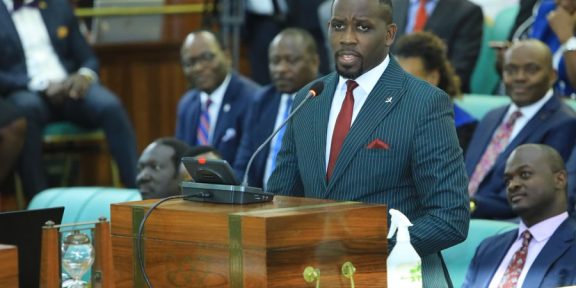As digital platforms continue to shape public discourse and economic activity in Uganda, the government is revisiting social media regulation with fresh proposals aimed at addressing online misinformation, data privacy, and digital accountability. This move, however, is stirring a mix of concern and curiosity among users, especially content creators, civil rights groups, and tech entrepreneurs.
A Brief Look Back
In 2018, Uganda introduced the Over-The-Top (OTT) tax, commonly referred to as the “social media tax.” It was met with public backlash and led to a spike in VPN usage as citizens sought to maintain access to platforms like Facebook, WhatsApp, and Twitter. While the OTT was scrapped in 2021 and replaced with a broader internet tax, the regulatory appetite did not disappear.
Over the years, Uganda has continued to explore new ways to monitor and manage digital spaces. Now in 2025, this conversation is taking a more structured form.
The 2025 Shift: What’s New?
The Ministry of ICT and National Guidance recently unveiled a draft proposal aimed at reinforcing accountability on social media. Key highlights include:
- Influencer Registration: Online personalities with a large following may be required to register with the Uganda Communications Commission (UCC), citing the need for professional conduct and content responsibility.
- Content Monitoring Units: Specialized teams are being proposed to monitor harmful content, including hate speech, fake news, and incitement to violence.
- Data Protection Reinforcement: New guidelines are being developed to ensure that platforms handling Ugandan user data comply with local laws, building upon the 2019 Data Protection and Privacy Act.
- Possible Licensing for Monetized Platforms: Platforms earning revenue from local audiences may be asked to obtain local operating licenses or contribute to a digital service tax.
Public Reaction: Between Skepticism and Support
While the government argues that regulation is necessary to maintain peace and protect citizens, critics worry about a return to censorship and suppression of free expression.
Digital rights advocates argue that requiring influencers to register could silence independent voices and stifle creativity. Meanwhile, youth-led movements and online businesses have expressed concern about potential operational barriers.
“This feels like another attempt to control dissenting voices,” said one Kampala-based content creator. “We’re open to regulation, but not at the cost of our freedom.”
Impact on Digital Uganda
If the proposed changes are passed into law, they could reshape Uganda’s digital economy. Influencers and creators may face new operational requirements, while businesses might need to reassess their online marketing strategies.
At the same time, there are possible upsides. Strengthening data protection could build public trust in digital platforms. Encouraging professional standards could also boost the credibility of online content in Uganda’s fast-growing creator economy.
What Lies Ahead?
The proposal is still under review, with the government calling for stakeholder engagement before final decisions are made. Civil society organizations have urged for transparent discussions that include voices from tech startups, content creators, journalists, and ordinary internet users.
As Uganda charts a new course in digital governance, the challenge will be finding the right balance: fostering a safe, responsible online environment without infringing on fundamental rights.
Conclusion
As 2025 unfolds, Uganda stands at a digital crossroads. Social media has become not just a space for communication, but also for business, activism, and identity. Regulation, while important, must be approached with sensitivity, clarity, and inclusion.
The hope is for policies that protect without silencing, and that empower without overreaching.











